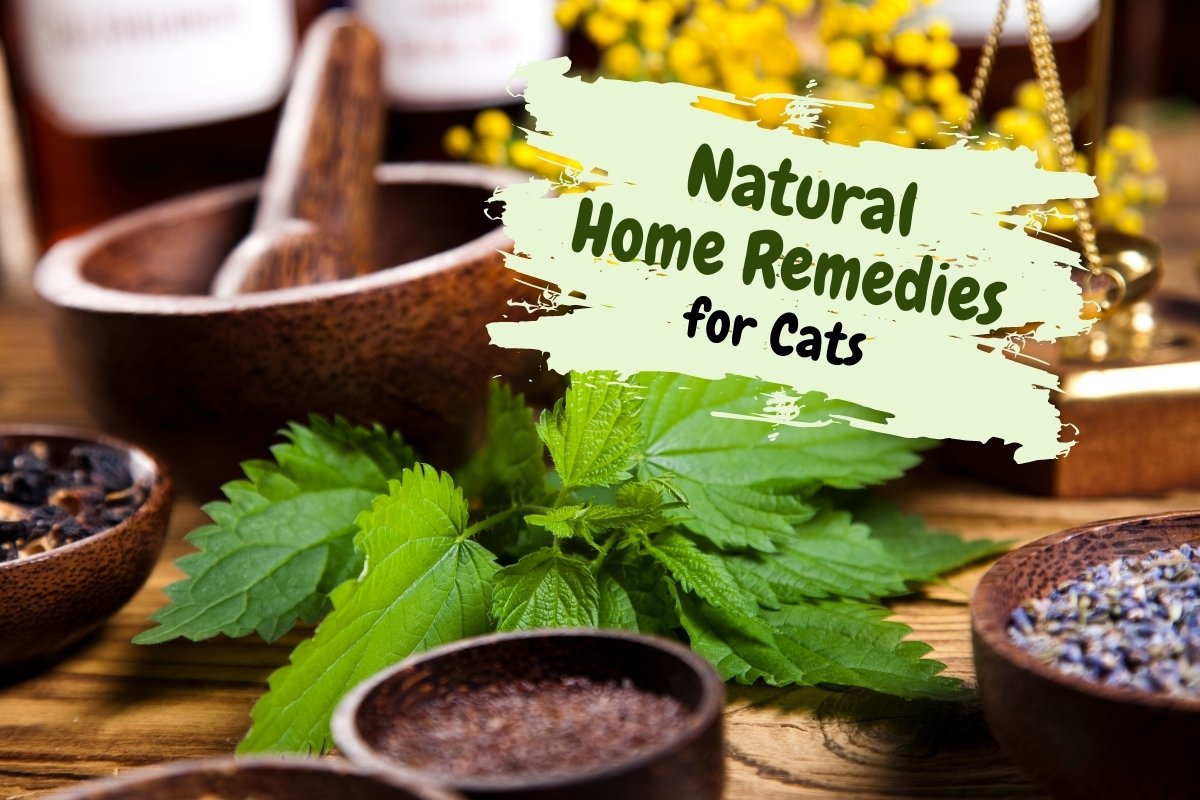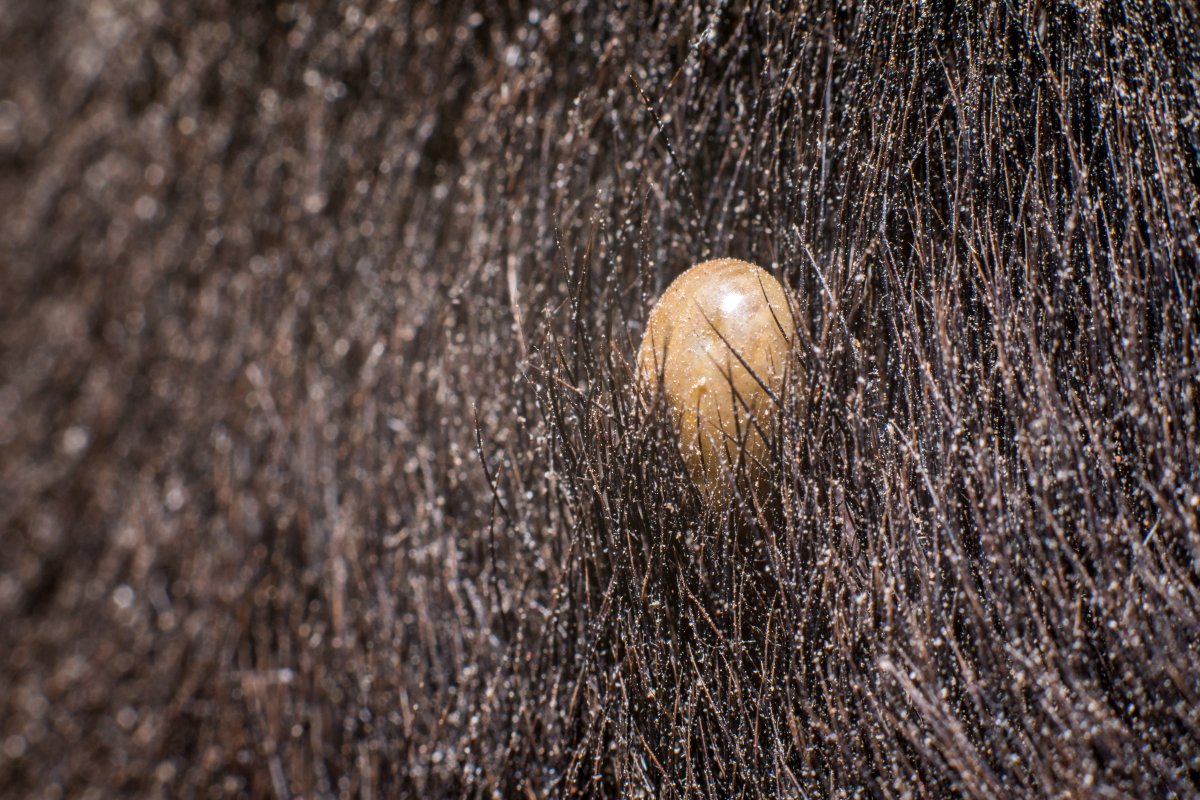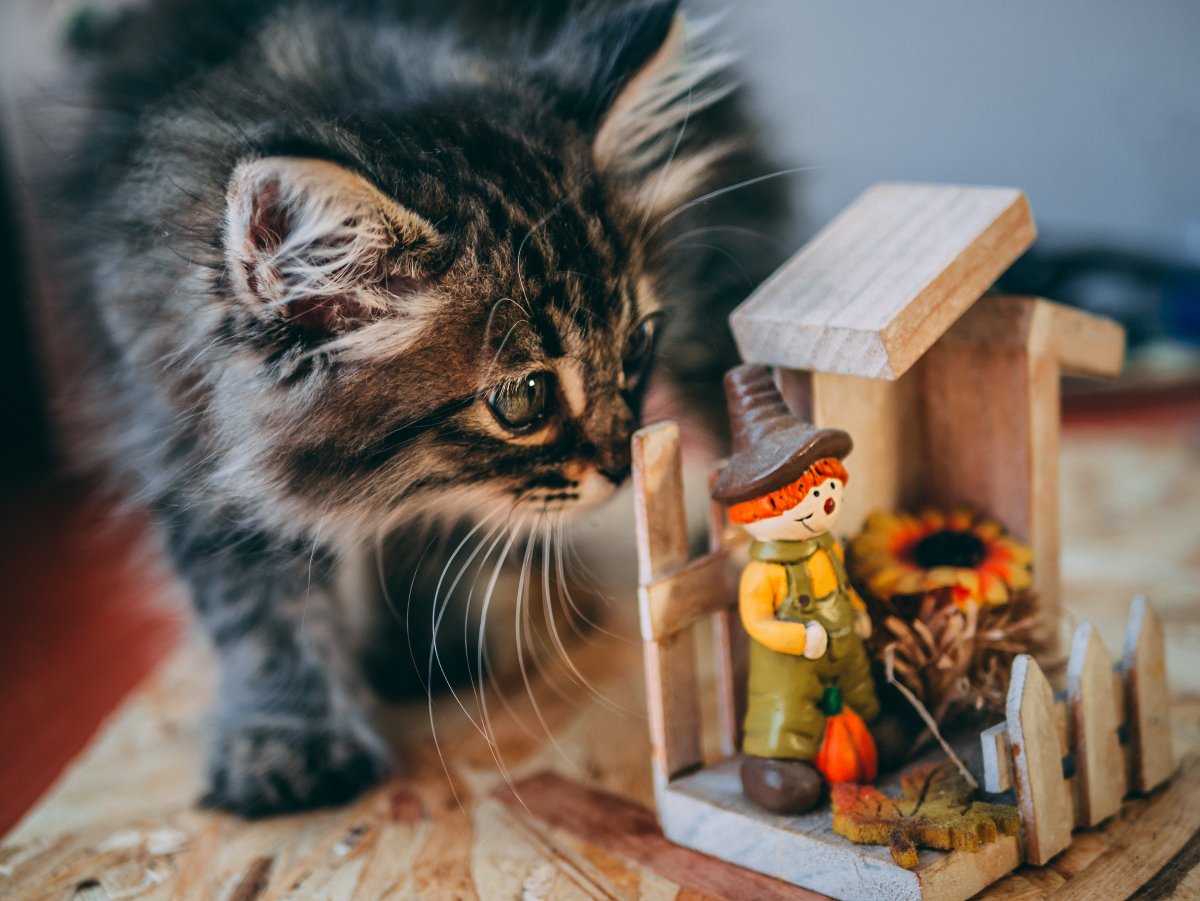Natural home remedies are increasingly being considered helpful to both animals and humans. While a visit to the veterinarian should not be overlooked when dealing with an illness or injury, natural herbal therapies can work in tandem with traditional medication.
Below are a few remedies that cat parents frequently utilize and benefit from.
❖ Saline Solution for Cat Eye Injuries
If your cat’s eye is red, leaking, or swollen, the cause could range from a foreign object to an infection in the eye. Cats’ eyes are readily inflamed and can be painful. To assist your cat, try rinsing the afflicted eye with saline solution to clear any debris that may be the source of the problem.
Minor open wounds can also be treated with saline solution. This solution should be used as a rinse to clean the wound, eliminate dirt, and keep the skin around the wound moisturized.
❖ Omega Fatty Acids for Shiny Skin and Fur
Omega fatty acids provide skin and coat support in cats. When consumed, your cat’s body can produce protein, repair wounds, and have their skin hydrated and healthy. If you feed them salmon or other fatty fish, you can include omega fatty acids in their diet. However, adding a supplement to your cat’s food plate is easy to absorb additional Omega richness into their regular diet.
❖ Dandelion Root for Liver
Dandelion is not only a remedy for illness, but it is also high in magnesium, vitamins, iron, and other minerals that your feline requires. Dandelion root has traditionally been used as a liver tonic for a cat’s liver digestive system, aiding in removing waste and poisons from the body. Combine dandelion with goldenseal to boost each of their antibacterial qualities.
❖ Hot Towel for Dandruff-Prone Cats
Wrapping your cat on a heated towel is one of the simplest home remedies that can provide quick relief to cats with flaky and dry skin.
- Soak a clean towel in hot water- but not so hot that it is uncomfortable to even hold in your hands.
- Next, thoroughly wring it out and delicately lay it over the afflicted areas while holding your cat. Wrap your cat for at least five minutes while quietly caressing and affectionately petting them.
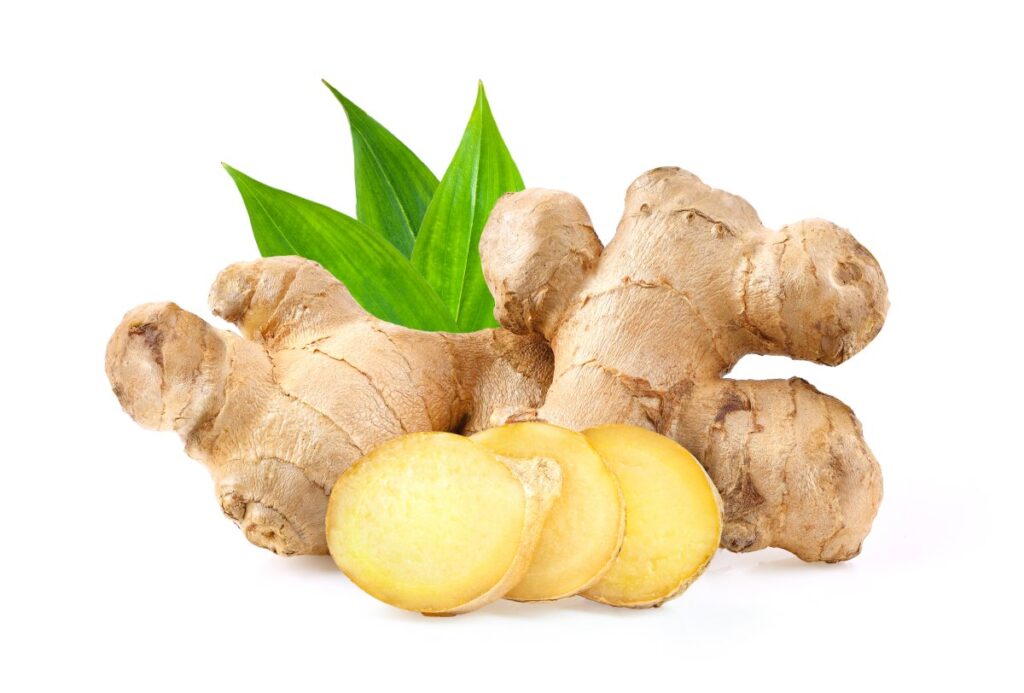
❖ Ginger for Vomiting
Ginger has been utilized in human medicine for ages because of its numerous health advantages and nutritional characteristics. Ginger tea is safe for cats to drink, aids digestion, and calms the stomach lining. Moreover, it has anti-nausea properties, and it is simply one of the most valuable and best home remedies for cat vomiting.
❖ Turmeric to Treat Wounds
Looking for home remedies for cat wounds? Turmeric is one of the answers. It is an antimicrobial and antifungal spice with a variety of medicinal properties. It is widely known for its antioxidant and anti-inflammatory properties. Cats can consume turmeric for various things, including preparing a paste to cure their wounds and its use in their meals.
Choose the highest quality turmeric powder available if you want your cat to benefit from the medicinal benefits of turmeric.
❖ Carrots for Immune System
Carrots are abundant in vitamin A and can aid in the removal of worms in our pet cats. Carrots are an excellent source of nourishment for your cats and could be used either as a tasty treat or added to meals. They are high in vitamins and minerals, boost the immune system, and are harmless.
❖ Apple Cider Vinegar for Urinary Tract Infection (UTI)
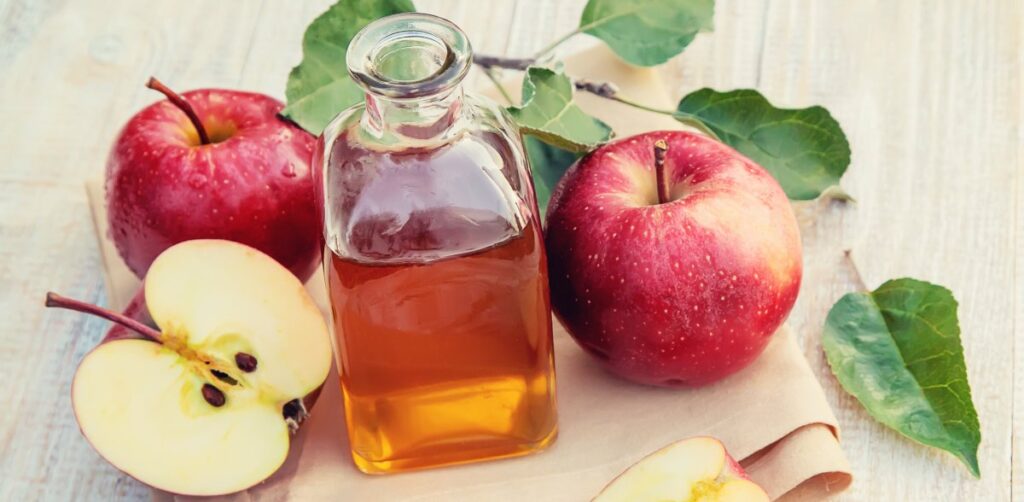
Yes, apple cider vinegar is definitely one of the home remedies for cat UTI.
ACV is a good treatment option for feline bladder infections. It can be used to generate and sustain an average pH balance in your cat’s urine, which helps to eliminate bacteria. Reducing bacteria will help your cat’s urinary tract heal properly and remain healthy. You can use ACV to treat infection signs and keep them at bay, or you can use it daily to avoid the development of chronic urinary infections.
❖ Coconut Oil to Prevent Production of Yeast
Coconut oil includes lauric acid, which inhibits yeast development. The oil contains antioxidants, which help to restore irritated or rough skin and protect against cellular injury. It can be used externally because it is non-toxic if your cat licks it, and you may wish to include it in your cat’s diet to ensure healthy fur and skin.
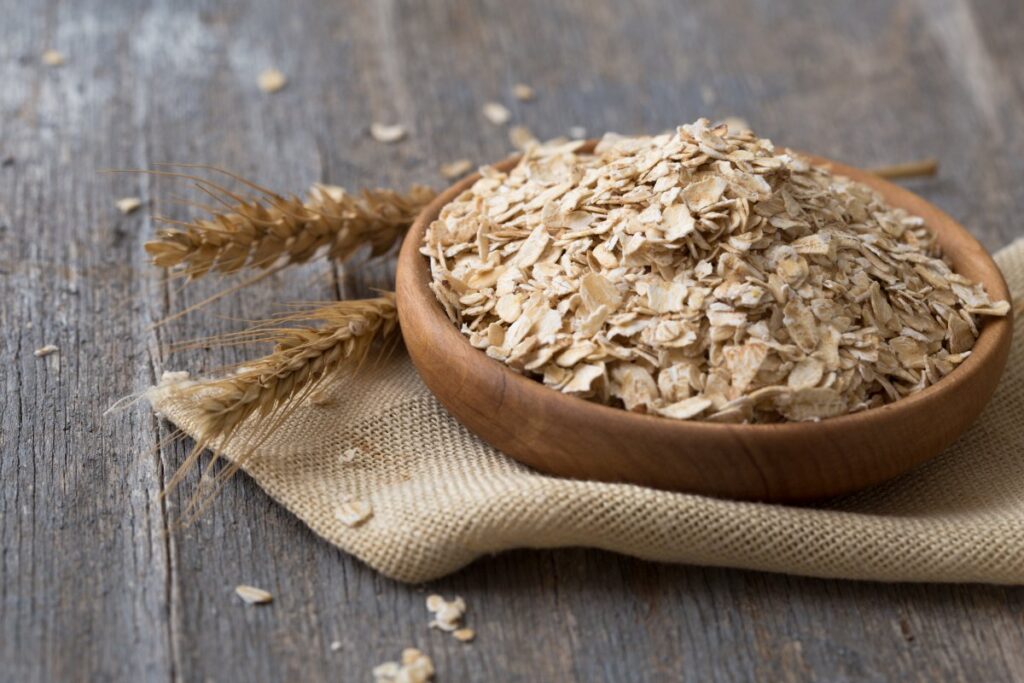
❖ Oatmeal for Itchy or Dry Skin
You can use oatmeal solutions to soothe itchy skin in cats. Oatmeal is beneficial to cats in various ways and acquires a healthy balance of amino acids due to its high protein and fat goodness. Your cat’s body can digest and use the high protein content and easily prevent dryness or itchiness.
❖ Pumpkin Seeds for Constipation
Pumpkin seeds are not only a home remedy for cat constipation, but they are also a home remedy for cat diarrhea.
Pumpkin seed fiber is an excellent way to ensure that your cat gets adequate carbs, fiber, and protein. This extra soluble fiber aids in absorbing water if moderate diarrhea is a concern, slows digestion, and can also help with mild constipation.
❖ Olive Oil to Ease Digestion
If your cat has hairballs, try mixing olive oil into their food. Adding olive oil to your cat’s meals will help digestion and allow them to pass hair easily when excreting. Let your cat lick the oil but do not force it into their mouth since this could enter their lungs.
A teaspoon of olive oil once every week should suffice. Oil in the digestive tract will improve digestion and help your cat eliminate hair in its feces, reducing stomach discomfort caused by hairballs. Other oils, such as mineral oil, and saffron oil, can also be beneficial.
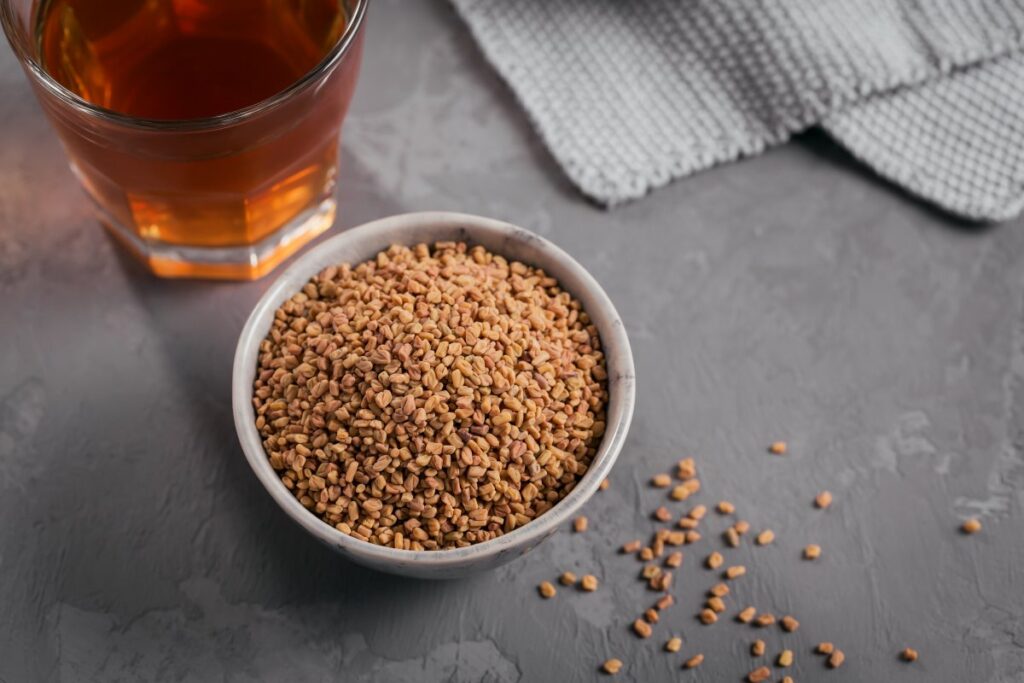
❖ Fenugreek for Diabetes
Fenugreek originally comes from India and is eaten the same way sunflower seeds are. It has been demonstrated to be beneficial in treating cat diabetes by slowing the rate of sugar absorption into the blood.
❖ Aloe Vera for Abrasions and Joint Pain
Aloe Vera is a famous herbal remedy for cat treatment. It comes in various forms, including leaves, tablets, and powder. It is well-known for its healing abilities and is commonly used to treat minor skin abrasions and joint pain.
Before administering anything to your cat, it is best to consult with your veterinarian. These natural therapies should be considered as additional helps to manage your pet’s illness rather than a stand-alone treatment.

